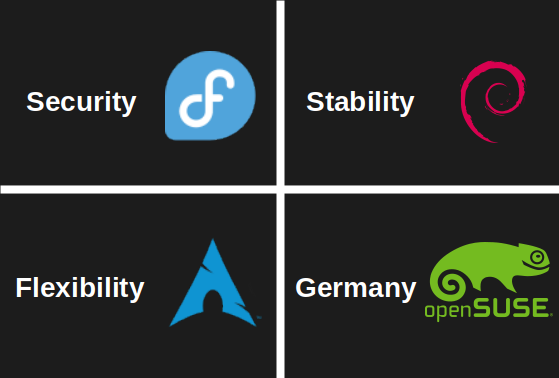this post was submitted on 13 Dec 2024
936 points (98.6% liked)
linuxmemes
21570 readers
433 users here now
Hint: :q!
Sister communities:
Community rules (click to expand)
1. Follow the site-wide rules
- Instance-wide TOS: https://legal.lemmy.world/tos/
- Lemmy code of conduct: https://join-lemmy.org/docs/code_of_conduct.html
2. Be civil
- Understand the difference between a joke and an insult.
- Do not harrass or attack members of the community for any reason.
- Leave remarks of "peasantry" to the PCMR community. If you dislike an OS/service/application, attack the thing you dislike, not the individuals who use it. Some people may not have a choice.
- Bigotry will not be tolerated.
- These rules are somewhat loosened when the subject is a public figure. Still, do not attack their person or incite harrassment.
3. Post Linux-related content
- Including Unix and BSD.
- Non-Linux content is acceptable as long as it makes a reference to Linux. For example, the poorly made mockery of
sudoin Windows. - No porn. Even if you watch it on a Linux machine.
4. No recent reposts
- Everybody uses Arch btw, can't quit Vim, and wants to interject for a moment. You can stop now.
Please report posts and comments that break these rules!
Important: never execute code or follow advice that you don't understand or can't verify, especially here. The word of the day is credibility. This is a meme community -- even the most helpful comments might just be shitposts that can damage your system. Be aware, be smart, don't fork-bomb your computer.
founded 2 years ago
MODERATORS
you are viewing a single comment's thread
view the rest of the comments
view the rest of the comments

While I personally agree with your sentiment, and much prefer arch to debian for my own systems, there is one way where debian can be more stable. When projects release software with bugs I usually have to deal with those on Arch, even if someone else has already submitted the bug reports upstream and they are already being worked on. There are often periods of a couple of weeks where something is broken - usually nothing big enough to be more than a minor annoyance that I can work around. Admittedly, I could just stop doing updates when everything seems to be working, to stay in a more stable state, but debian is a bit more broadly and thoroughly tested. Although the downside is that when upstream bugs do slip through into debian, they tend to stay there longer than they do on arch. That said, most of those bugs wouldn't get fixed as fast upstream if not for rolling distro users testing things and finding bugs before buggy releases get to non-rolling "stable" distros.
I honestly don't see this thorough testing. Not for a lot of apps I use anyway. It's normal tbf even with 2 year you can't thoroughly test every package for every bug, so you're stuck with very old bugs a lot more often than people think. And on top of that some packages are so old that instructions you find on their git pages or wherever are too new and don't work.